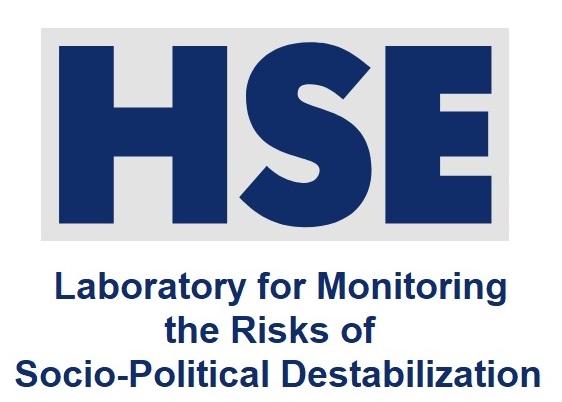About the Centre
The main activity of the Centre is systemic monitoring and analysis of dynamics of socio-political transformation of specific countries and regions, forecasting their social and political development and consecutive development of recommendations on overcoming and avoiding socio-political instability.
Yevgeny Ivanov on the prospects of labor migration from India
CSRA researcher told the Indian portal Counter Сurrents about the recent trends in the labor migration market in Russia and discussed the possible influx of labour migraint from India.

Vadim Ustyuzhanin presented his research Illuminating the Impact of Resistance: Nonviolent Political Movements and Economic Activity at the 28th IPSA World Congress of Political Science in Seoul.

The Center's researcher has graduated from HSE with honors!
The CSRA team congratulates Vadim Ustyuzhanin, a member of our crew, on successfully completing the master's program in Comparative Social Research! During his studies, Vadim Ustyuzhanin published numerous academic articles, won a research grant, registered an intellectual property asset (RID), led a project group, and presented at academic conferences. It is important to note that Vadim Ustyuzhanin graduated with honors. Once again, we congratulate our colleague and wish him further success!
Forbes University Ranking: HSE Has Top Reputation among Employers
On May 22, Forbes Education released its updated ranking of the 100 best universities in Russia for 2025. HSE University retained its second-place position, having established itself as the university with the highest employer reputation. Among the top 20 were 12 universities from Moscow, three from St Petersburg, two from Tatarstan, and one each from the Sverdlovsk, Novosibirsk, and Tomsk regions.

CSRA bridges HSE University and Ghana
In March 2025, Micah Zing, a Junior Research Fellow at the Centre for Stability and Risks Analysis under the Faculty of Social Science at HSE University, Moscow, undertook an outreach and scholarship drive across various regions in Ghana. This initiative was supported by the International Admission and Talent Development Office of HSE University.

CSRA held the workshop ‘Russia and India: Perception of Each Other’
On Friday 18 April, another seminar was held by the Centre for Stability and Risk Analysis. The event was dedicated to the study of Russia's representation in the English-language mass media in India. The keynote speaker was Dimitri Spiridonov, an intern of the CSRA.

HSE Expands Cooperation with Gulf Countries
HSE University and the Centre for International Policy Research (Qatar) have agreed to collaborate in the field of social sciences, with plans for joint research, academic exchanges, and regular expert engagement. The agreement was signed during the roundtable ‘State Capacity and State Resilience in the Global South,’ held as part of the 25th Yasin (April) International Academic Conference at HSE University.
Yevgeny Ivanov took part in the international scientific seminar ‘The Syrian conflict and its impact on the post-Soviet area’
On 27 January 2025, the Institute of Oriental Studies of the Russian Academy of Sciences hosted an international scientific seminar ‘The Situation in Syria and its Impact on the Post-Soviet Area. The event was organised by the Laboratory of Contemporary Central Asia and Caucasus Studies. The seminar was attended by academic researchers and experts from Russia and abroad.
The President of Russia awarded the title ‘Honoured Scholar of the Russian Federation’ to the scientific director of CSRA
According to the decree of the President Vladimir Putin issued 24.01.2025, Askar Akaev is honoured with a high award ‘for his contribution to training highly qualified specialists, scholars and teacher during many years of diligent work’.



